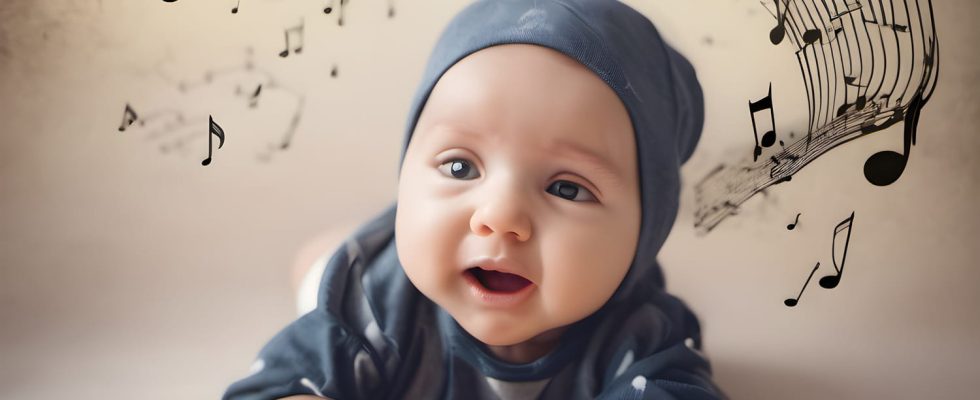“A green mouse”, “Once upon a little ship”, “Let’s dance the Capucine”… If you look at the words of these nursery rhymes, you risk being shocked. Sneaky, violent or naughty, certain songs that we all hum to children have a real hidden meaning. Decryption.
THE lullabies and nursery rhymes for children are perfect for calming or putting baby to sleep, also to awaken him to words, to music and to entertain him with songs. From generation to generation, these little nursery rhymes are passed down and we all know them by heart, or almost. “A green mouse”, “In the light of the moon”, “Let’s dance the Capucine”, “He was a little ship”, “He runs, he runs, the ferret”… At the mere mention of the title, we have already this childish air that comes to mind. But on closer inspection, the lyrics of these ditties are not as innocent as they seem. They often hide a hidden meaning, referring to torture, cannibalism, poverty or even sexuality. Serge Hureau and Olivier Hussenet looked into the issue through their book “What we hear in the songs – From lullabies to the great hits of the repertoire” published by Points. Here are the most famous baby nursery rhymes, and what they really mean:
“A Green Mouse”, the story of a tortured soldier. The green mouse which ends up drowned in oil and boiling water to make it “a hot snail” refers to a soldier during the Vendée War, which took place between 1793 and 1796. The latter would have been pursued, tracked and tortured by Republican soldiers.
“There was a little ship”: a cannibalistic song. This catchy nursery rhyme tells the story of a sailor on his boat who undertook a long journey in the Mediterranean. So far, so good. Except that then, there was no longer enough food for the crew who decided to draw straws to see who would be eaten first… And it was the youngest! “Uh ohe”, did you really get to the end of the lyrics?
We will no longer go to the woods: a song about prostitution. According to the authors of the work “What we hear in the songs”, it speaks of the brothels, “decorated with laurels”, which were closed by Louis XIV following the diseases which spread among the workers working at the 17th century in the garden of Versailles.
Has a clear fountain is a nursery rhyme that echoes women who invite the pleasure of the flesh, specify the authors of the book.
In the moonlight : on the same theme, this nursery rhyme so popular with children actually talks about erection problems in men (“My candle is dead, I no longer have a fire”). Also listen to Pierrot’s response to the Moon that at the neighbor’s house “we beat the lighter”, which means that there is sexual intercourse.
Let’s dance the Capucine: a song that evokes child poverty. By listening carefully to the words, you will realize that they do not have enough food and envy their neighbor who eats her fill.
He was a shepherdess. Do you know what “let the cat go to the cheese” means in this children’s rhyme? To do this, it is necessary to translate into old French: “to lose one’s virginity before marriage”.
Jean Petit dancing. As its title suggests, this song makes us want to dance. But the main character of this nursery rhyme would be none other than a leader of the peasant revolt of Villefranche-sur-Saône, who, according to France Culture, would have been captured and tortured in a public square, limbs broken one after the other. others. The lyrics of the nursery rhyme do not explicitly mention torture, but all the members of the human body, which dance, are listed… After this analysis, we bet that you will no longer see these nursery rhymes and lullabies in the same eye?
